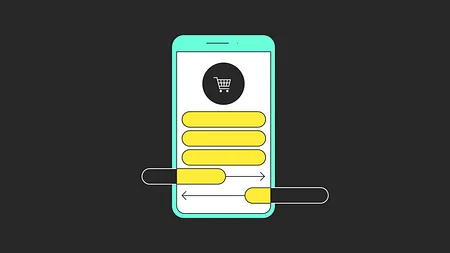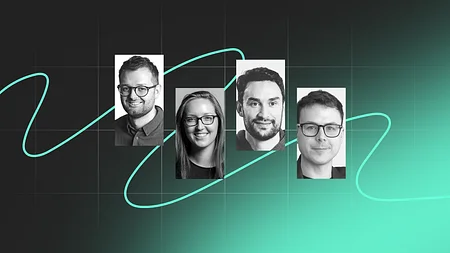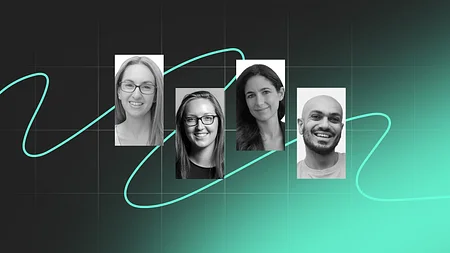Fintech Insider News: Underserved and Overcharged
Picking apart the week on the Fintech Insider News show alongside hosts Simon Taylor and Ross Gallagher are Carrie Osman, CEO and founder of Cruxy, Ali Paterson, Editor of Fintech Finance, Amelie Arras, Marketing Director of Adastra Marketing, and Veronique Constans, Programme Manager at 11:FS.
Listen here for the episode in full, stream it below or read on for extra insights.
Fintech Funding Soars
Are we seeing the next wave of startups? - Simon TaylorWe started the show with a story that’s full of good news for the entire fintech industry. Global fintech funding has reached record highs of $5.4 billion in Q1 of 2018, boosted further by a dozen rounds that raised at least $100 million each. European fintech had initially seen a five quarter low but managed to hit a five quarter high. It’s thanks to the funding rounds received by later-stage digital banking startups, N26 and Atom Bank.
Revolunicorn Status
Revolut is diversifying so much that it’s almost always heading for low hanging fruit...I have no idea how sustainable that is for them in terms of customer acquisition - Ali PatersonRevolut achieves unicorn status after a $1.7 billion valuation following series C funding that saw them raise $250 million. It’s an impressively high valuation for a 3 year old company. Transferwise took 7 years to reach a valuation of $1.6 billion. Revolut boasts 2 million users with 250K active users per day and now have a 5x increase in value since mid-2017. Simon asks whether these are just vanity metrics and Carrie questions the average transaction value and how what they’re capturing affects their balance sheet.
International Bank of Transferwise
“Great simplicity but how does it run internally?” - Carrie OsmanTransferwise launched their borderless multi-country bank account and debit card, aimed at enabling customers to manage their money between countries with ease. Anyone living in the UK and EU can get the free account with instant local bank details for the UK, US, Australia, and Europe. The contactless Mastercard debit card enables spending abroad and customers are able to convert into 40 currencies with zero fees. Ross also delivers a beautiful poem for Transferwise. I won’t write it out for you but you can listen to it here on the Fintech Insider podcast.
Starling Gains Another Feather
Aviva-backed online investment service Wealthify, is now available on Starling’s marketplace. Users of the marketplace now have access to the low-fee ISAs and general investment plans on the platform. One of the good things about Wealthify is the strong financial inclusion aspect. Customers don’t need to have a great deal of money to invest in it.TSB Transfer Woes
“What’s going to set TSB out competitively moving forward is...a modern core banking system and a high street presence.” - Ross GallagherAfter more than a week of issues plaguing the bank’s digital platform, half of TSB customers are still locked out of their accounts. The beleaguered bank has admitted that only 50% of its Internet banking capacity is working. However, in positive news 90% of TSB’s mobile app capacity has been achieved.
“The bank is working, the core system is clearly successful, it’s just part of the front end” - Ali PatersonAn upgrade to its banking system last weekend inadvertently caused issues for customers of TSB, which separated from Lloyds in 2013. TSB CEO Paul Pester commented “Our internet banking and mobile app isn't functioning as well as it should be.” He went on to promise customers that none would be left out of pocket as a result of the glitch. TSB have drafted in tech experts IBM in a bid to try and fix the issue. TSB’s woes have proven that big bang migration is a bad idea for incumbent banks.
Blockchain in the Amazon Jungle
Being able to create the consistency that blockchain gives you, that revolution and reconciliation is a powerful thing - Simon TaylorAmazon Web Services has announced its new blockchain service, Blockchain Templates. They’re offering blockchain-as-a-service to compete with similar products coming from IBM and Oracle. Other competitors include, Huawei, Tencent, and Baidu. Carrie notes that there’s a clear role for the token in a tokenised economic model, so freeing up blockchain and giving more potential to build blockchains may impact on ICOs. Simon remarks that the macro-theme around blockchain has shifted from get rich quick to get rich slowly, and is helping it creep towards legitimacy.
World Bank Releases Latest Global Findex Database
“The reality is that in some areas we should question whether people even need bank accounts, the better thing is that they have something that works in their lives.” - Carrie OsmanThe World Bank released a host of data with largely good news. An additional 515 million people have opened some type of financial services account between 2014 and 2017. Those years are because the database is released every 3 years. The panel has a few minor disagreements on where the more nuanced good aspects are found in this story. But on the whole it’s clear that the unbanked gaining access to services they need to live their lives, no matter who or where they are, is a good thing.
Contactless Drives the Commute
“Transit is a great way to change habits” - Simon TaylorHalf of all Tube and rail pay-as-you-go journeys across London are now made using contactless payments. It’s a 25% rise on the total two years ago. It also makes up 45% of all bus and tram journeys. The panel points out that there shouldn’t be anything surprising here and the technology isn’t new. It’s been available in the UK since 2012 and in Hong Kong since before even that with even greater adoption. Carrie ponders whether or not it’s the same outside of London, considering that the highest usage areas are Blackfriars, Shoreditch High Street, Canary Wharf, and Clapham Common.


